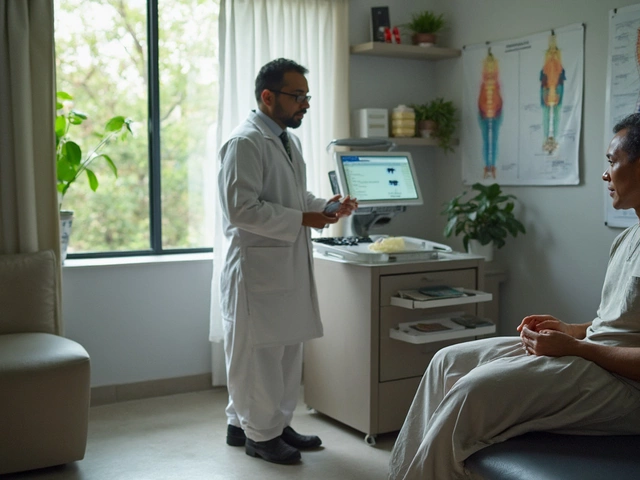Breasts: How Medicines Can Affect Your Health
When you hear the word "breasts," you probably think about beauty or breastfeeding. But the same organs can also react to the medicines you take. Some drugs change hormone levels, cause swelling, or even increase the risk of tumors. Knowing which pills might affect your breasts helps you avoid surprises.
Common Concerns About Breast‑Related Drugs
Hormone‑based treatments are the biggest culprits. Birth‑control pills, hormone replacement therapy, and certain antidepressants can make tissue feel tender or cause lumps. If you notice new pain or a change in size after starting a new prescription, write it down and tell your doctor.
Another group includes cancer‑fighting drugs. Some chemotherapy agents can lead to temporary breast swelling, while others may affect milk production if you’re nursing. The key is to ask your oncologist how each drug might change your breast tissue.
What to Watch For and When to Act
Spotting a problem early makes it easier to manage. Look for these signs: sudden pain, a hard lump, redness, or nipple discharge that isn’t milk. Even if the symptom seems mild, a quick check with a doctor can rule out serious issues.
Remember, not every change means danger. Some medicines cause harmless swelling that goes away after a few weeks. Your doctor can tell you if you need an ultrasound, a mammogram, or simply a watch‑and‑wait approach.
When you get a new prescription, ask the pharmacist two simple questions: "Can this drug affect my breasts?" and "What should I do if I notice changes?" Most pharmacists are happy to share a quick safety tip.
If you’re already on a medication that bothers your breasts, don’t stop it on your own. Talk to your doctor about adjusting the dose or swapping for a different drug. Sometimes a small change fixes the problem without compromising treatment.
For nursing mothers, some medicines pass into breast milk. Antibiotics like amoxicillin are usually safe, but others, like certain antiepileptics, can affect the baby’s growth. Always check the Indian health guidelines or ask a pediatrician before taking anything new while breastfeeding.
Natural supplements also enter the picture. Many herbal products claim to support breast health, but they aren’t always tested for safety. Look for brands that list their ingredients clearly and have third‑party testing.
Bottom line: your breasts react to what’s inside your body, including the medicines you use. Stay observant, ask questions, and keep a simple diary of any changes. With the right awareness, you can enjoy the benefits of treatment without compromising breast health.

What Happens to Breasts During Open Heart Surgery? The Real Story
This article breaks down what really happens to breasts during open heart surgery, how surgeons work around them, and what women can expect before and after the operation. You'll learn about incisions, positioning, post-op swelling, and how to manage scars. Honest answers and practical advice, straight from patient and doctor experiences.

How Rare Is It to Survive Open Heart Surgery?
May, 11 2025

Can Ashwagandha Cause Weight Gain?
Mar, 9 2025


